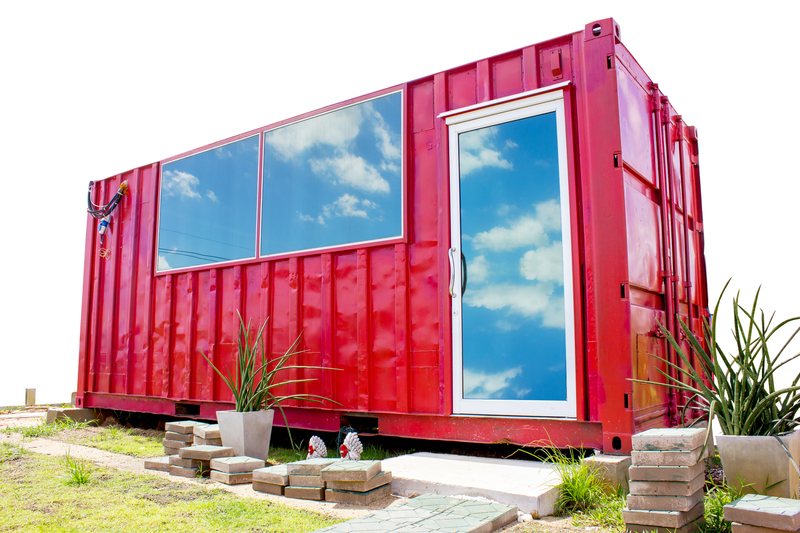Smart Budget Tips for Bulky Waste Item Disposal
If you've ever renovated, moved homes, or simply decluttered your living space, you know that getting rid of bulky waste items--such as old furniture, mattresses, appliances, and other oversized junk--can be a daunting and often expensive task. Bulky waste item disposal requires careful planning and cost-effective strategies to make sure you're both eco-friendly and easy on your wallet.
In this comprehensive guide, you'll discover budget-friendly tips, essential information, and actionable steps to help you tackle large trash removal with confidence. Read on to find out how to dispose of those unwanted large items without overspending or harming the environment.

Understanding Bulky Waste and the Importance of Smart Disposal
Bulky waste, also known as large waste items or "hard rubbish," comprises items that can't fit in your regular trash bin. Common examples include:
- Old sofas and couches
- Mismatched tables, chairs, and cabinets
- Broken mattresses and bed frames
- Large home appliances like refrigerators, washing machines, and dishwashers
- Carpets, rugs, and other oversized household goods
- Garden waste (e.g., tree stumps, large branches) in some regions
*Why is proper bulky item removal so important?* Here are a few reasons:
- Environmental Impact: Incorrect disposal leads to pollution and overflowing landfills.
- Legal Requirements: Many cities regulate the disposal of large waste items. Dumping illegally can result in hefty fines.
- Public Safety: Abandoned bulky waste can be a hazard in public spaces.
- Resource Recovery: Smart disposal allows for potential recycling, upcycling, or donation.
1. Plan Ahead To Save On Bulky Waste Item Collection
The key to smart budgeting starts with planning ahead. Spontaneous bulk item disposal is often more expensive. Here's what you can do:
- Set a disposal date for your bulky waste items based on your local council's collection schedule or recycling center's operating hours.
- Gather all large items at once--multiple trips or collections often cost more.
- Assess whether items are eligible for free pickup programs (see below).
Quick tip: Many municipalities offer annual or semi-annual bulky item pickup. Mark your calendar so you can take advantage of these free or discounted collection days.
2. Leverage Local Council & Municipal Collection Services
Check Free or Subsidized Large Item Disposal Days
Most cities and towns provide bulky waste item collection services, often included in your taxes or utility fees. These scheduled pickups are one of the most budget-friendly options for household bulky waste disposal.
- Look up your city's waste management website.
- Register for upcoming bulk pickup days--some require advance notice.
- Follow local rules on what can and cannot be left out for municipal collection.
Important: Items with hazardous components (such as fridges with coolant or electronics) may require special handling or separate drop-off at designated recycling centers.
3. Explore Private Waste Removal Companies (on a Budget)
If you miss the free municipal pickup window or need faster service, private junk removal companies can help. However, costs vary widely--bulky item removal pricing can be charged per item, by volume, or by truckload.
Tips to Save Money on Private Junk Removal
- Get multiple quotes: Use comparison websites or call several services. Some may price-match or offer discounts for first-time customers.
- Opt for curbside pickup--it's usually cheaper than in-home collection.
- Consider sharing a removal with neighbors--pool your items to reach minimum load requirements and split the cost.
- Ask about eco-disposal discounts if your items are mostly recyclable or donatable.
Pro-Tip: Some charities offer free or low-cost bulky waste pickups if items can still be reused.
4. Donate, Sell, or Give Away - A Circular Solution
What if your large waste items could find a new home? Before you pay to throw away bulky goods, consider these budget-savvy solutions:
Donation
- Contact local charities, thrift stores, or shelters--many accept furniture and appliances in good condition and may offer free pickup.
- Search for donation drives or pickup events in your area.
Selling
- List items on classifieds websites (e.g., Craigslist, Facebook Marketplace, OfferUp).
- Participate in community garage sales or flea markets.
- Even a small sale amount reduces your overall disposal costs.
Give Away for Free
- Use platforms like Freecycle or neighborhood apps to offer items for free local pickup.
- Sometimes, placing a "Free--Take Me" sign on the item curbside works--but check local ordinances to avoid fines.
Benefits:
- You save money on disposal fees.
- You support reuse and prevent landfill waste.
- You might even get a tax deduction for charitable donations.
5. DIY Hauling: Is It Worth the Cost?
Hauling bulky waste yourself can be the cheapest method, especially for items that aren't accepted during municipal bulky waste collection. Consider these budget tips for self-disposal:
- Borrow or rent a truck if you don't own one. Compare rental costs in advance.
- Enlist friends or family to help with heavy lifting--save on labor costs.
- Weigh vehicle gas and landfill/recycling center fees against possible professional removal quotes.
- Contact your local landfill or recycling center for disposal rates and item restrictions.
Note: Items like mattresses, tires, and certain electronics may not be accepted at regular landfills.
6. Rent a Dumpster (For Large Renovation or Cleanout Projects)
For significant remodels or estate cleanouts, renting a dumpster can be a cost-effective solution for bulky waste management. Here's how to make it affordable:
- Choose the right dumpster size--don't overpay for space you don't need.
- Compare at least three local dumpster rental companies.
- Ask about dumpster sharing with neighbors or community groups.
- Stick to allowed waste types--mixing prohibited items could lead to extra fees.
- Load efficiently to maximize space utilization.
Budget tip: Some companies offer "weekend specials" or short-term rentals at reduced rates.
7. Upcycle or Repurpose Your Bulky Items
Sometimes the most creative and economical solution is to transform large unwanted items into something new, either for your use or as a donation. Popular upcycling projects for bulky waste include:
- Turning an old door into a desk or shelving unit
- Refinishing furniture for resale
- Converting appliance parts into workshop or garden tools
This method reduces your costly waste output while unleashing your inner DIY enthusiast!
8. Special Considerations: Hazardous Bulky Waste Disposal
Not all bulky waste is created equal. Some items require special handling, which can affect your budget and disposal options:
- Appliances containing refrigerant (fridges, air conditioners) need certified removal of chemicals.
- Electronics: TVs, monitors, and computers often require e-waste recycling.
- Mattresses: Many areas restrict landfill disposal due to bulk and recycling mandates.
- Building materials: Paint, chemicals, or construction debris may have specific drop-off locations.
Expert Budgeting Tips for Bulky Waste Item Disposal
- Group items: Save money by disposing of multiple items in a single batch.
- Use what you pay for: Take full advantage of municipal paid collection or landfill access paid through local taxes.
- Minimize landfill charges: Remove recyclable components before dropping items at the dump (e.g., metal frames from sofas).
- Stay organized: List all large waste to avoid last-minute, expensive add-ons.
- Contact non-profits: Habitat for Humanity, Goodwill, and local churches sometimes offer no-cost removal for usable donations.
- Reserve in advance: Dumpster rentals and junk hauling often come with early-bird or off-peak discounts.
- Check for incentives: Some towns provide vouchers, coupons, or rebates for proper bulky waste disposal or recycling.

FAQ: Smart Solutions for Large Waste Disposal
How much does bulky item disposal usually cost?
Costs can range from free (using city services or donating items) to hundreds of dollars (for private professional removal, special pick-ups, or dumpster rentals). Planning and comparison-shopping are crucial for budget savings.
Can I leave bulky waste on the curb?
Only if your city or waste management provider allows it! Check local guidelines--illegal dumping can result in fines.
Are there free bulky waste pickup services?
Many municipalities offer annual or semi-annual free pickups. Charities sometimes collect large reusable goods at no charge. Double-check local schedules.
What's the cheapest way to dispose of bulky items?
Often, the least expensive solution is rehoming items (donation/selling/giving away) or waiting for your city's free bulky waste day. For immediate or large-scale disposal, compare costs among private haulers, self-hauling, and group disposal.
Conclusion: Budget-Friendly and Sustainable Bulky Waste Disposal
Disposing of large, unwanted items doesn't have to be costly or environmentally damaging. By utilizing a combination of municipal services, private junk removers, DIY hauling, donation/sale, and upcycling, you can streamline the process and keep your expenses to a minimum. Whether you're clearing out a home, tackling a renovation, or just tidying up, remember these smart budget tips for bulky waste item disposal to save money, reduce waste, and act responsibly for your community and planet.
Ready to take action?
Start by making a list of your bulky items and exploring your local disposal options. Working smarter (not harder) will help your wallet and the world around you flourish!
